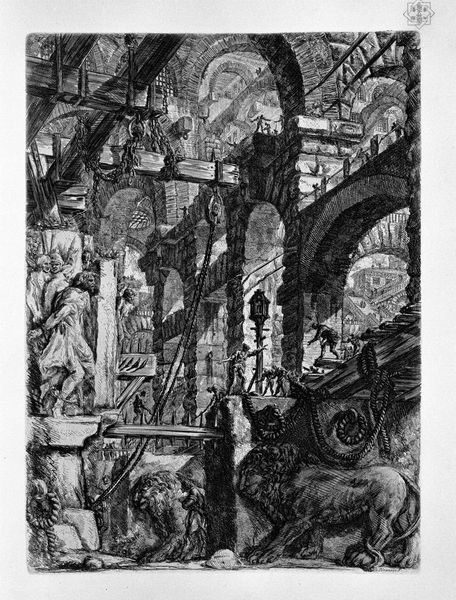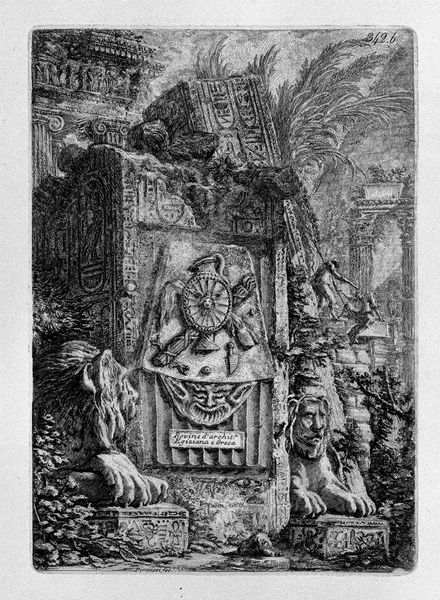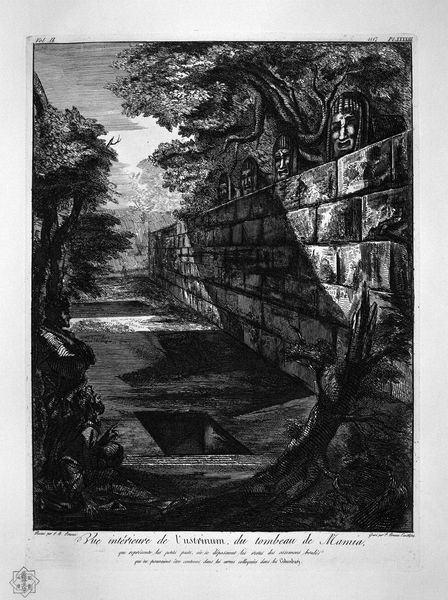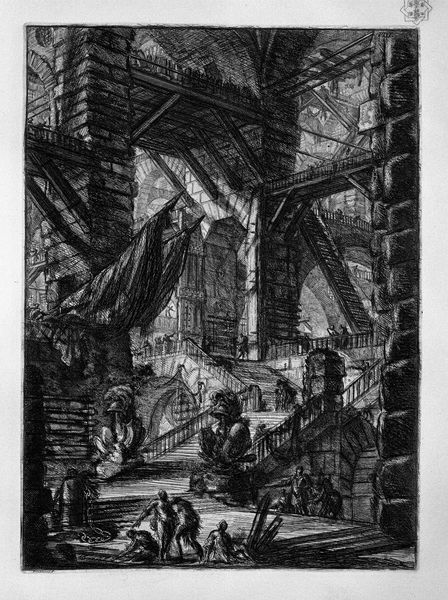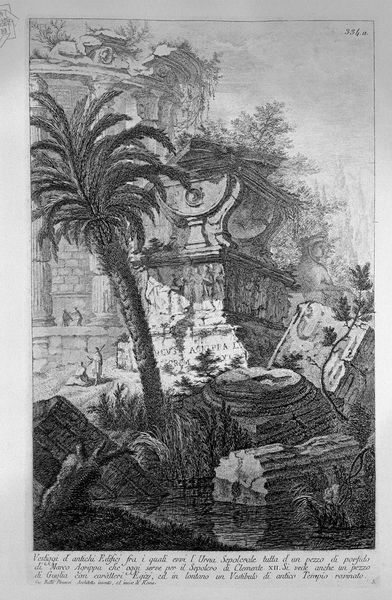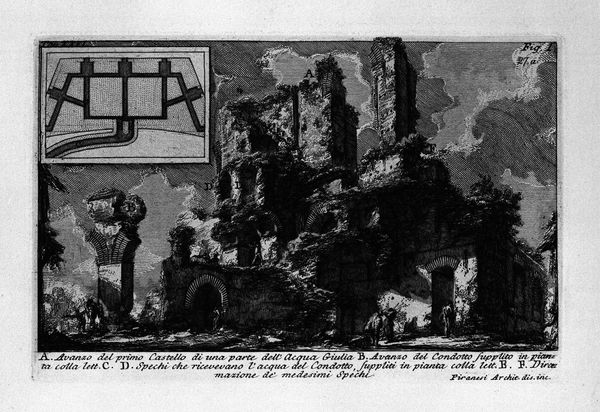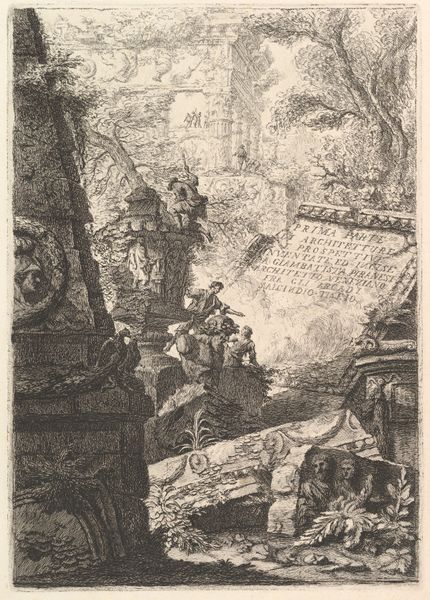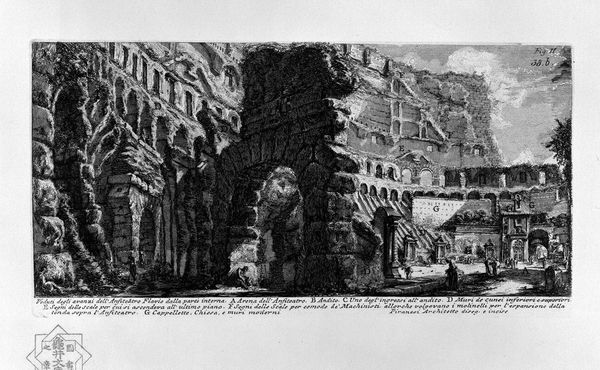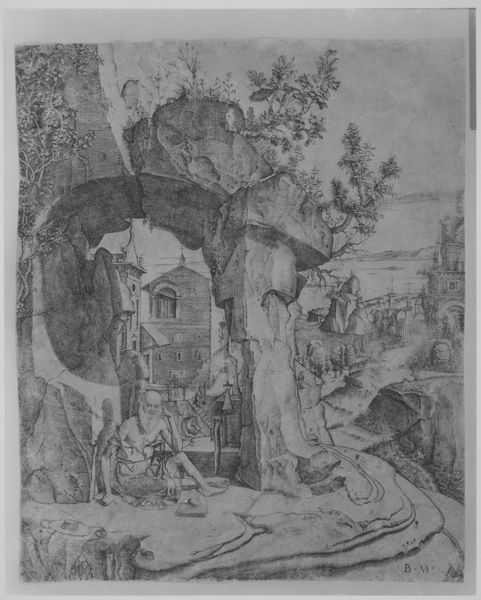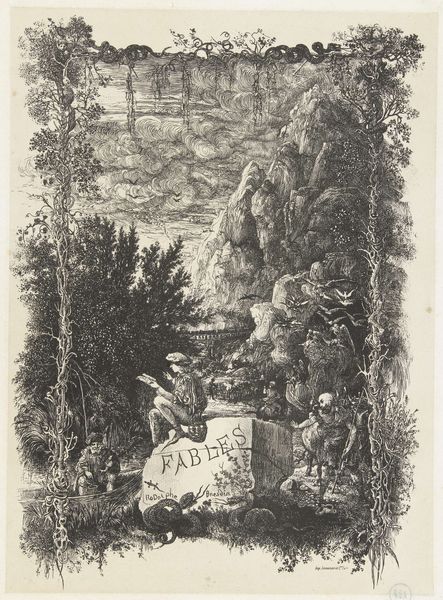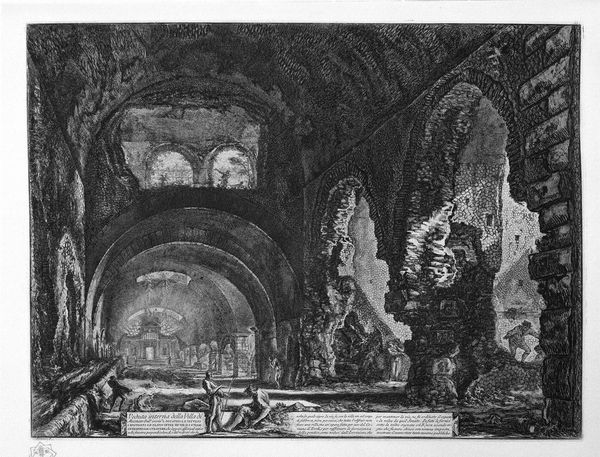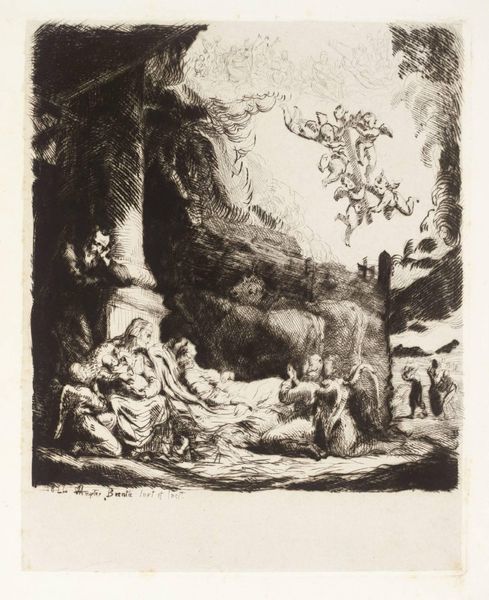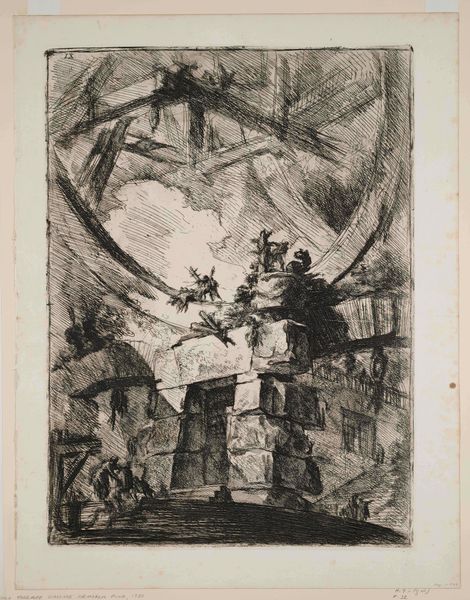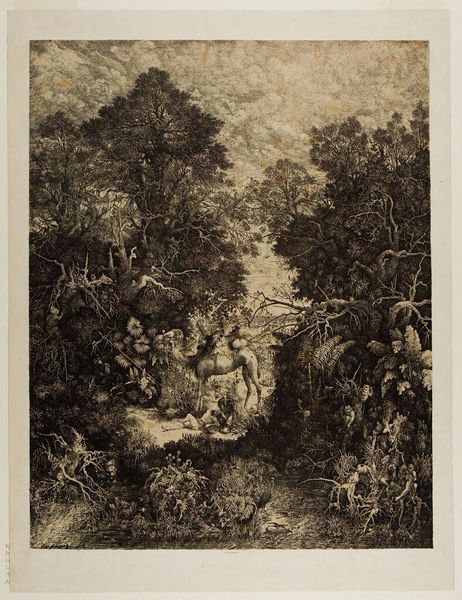
print, etching, engraving, architecture
#
neoclacissism
# print
#
etching
#
carving
#
landscape
#
romanesque
#
history-painting
#
engraving
#
architecture
Copyright: Public domain
This print, by Giovanni Battista Piranesi, presents a complex scene of ruins rendered with intricate lines and textures. The stark contrast between light and shadow creates a dramatic visual experience, evoking a sense of decay and the sublime. Piranesi masterfully employs line to define forms, from the crumbled stones of the tomb and aqueduct, to the foliage. The composition guides our eye through a series of architectural fragments, questioning fixed meanings and values in classical structures. The aqueduct as a functional structure, the tomb as a monument, and the surrounding nature each become part of a semiotic system. The textures, achieved through varied etching techniques, add depth and realism, contributing to the overall emotional impact of the scene. The formal qualities of this print, particularly its use of line and texture, function not just aesthetically, but also as part of a larger cultural and philosophical discourse on the transient nature of human achievement.
Comments
No comments
Be the first to comment and join the conversation on the ultimate creative platform.
